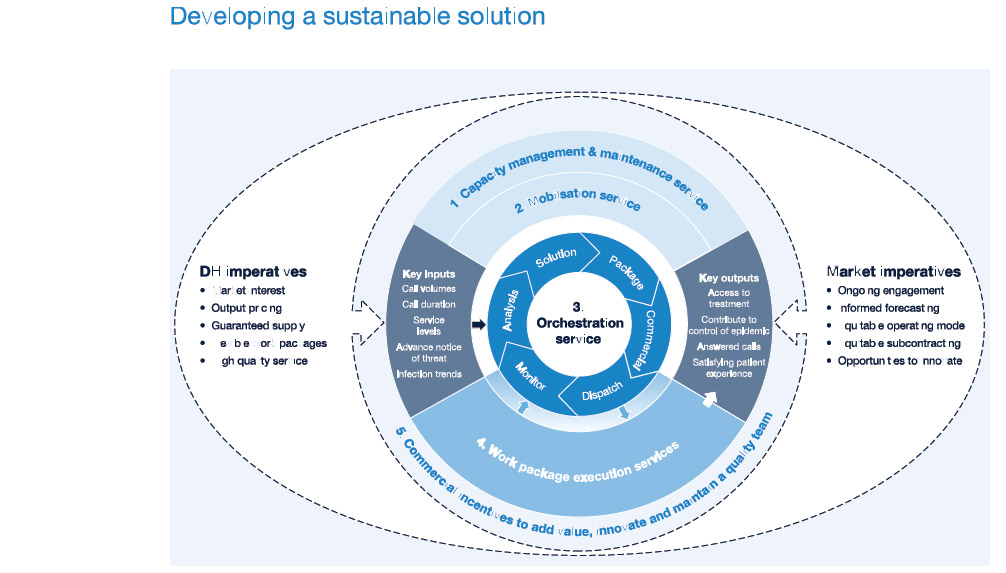- Major industry restructure – Definition, negotiation and delivery of service level agreements to support water industry transformation in Ireland
- Consortium major UK Telcos – Delivery of an independent assessment of cost impact of regulatory proposals for industry change to ensure correct decisions taken and appropriate budgets allocated
- Neareast Telco - Business plan and market entry strategy for Turkey to become the ‘location of choice’ for the offshore contact centre outsourcing and grow GDP by 3-4%
- Ofgem – Provided assurance to the government and industry that preparations for the introduction of competition would result in a smoothly customer and market operations
- HMG – Energy/FS – Delivering a detailed design for partner relationship and other business functions to accelerated delivery of a complex multiparty start up
- Altnet/Mobile, ESAT – Facilitated planning for a joint venture, subsequently executed, to use railway telecoms assets in Ireland to establish a national SDH network, working with senior technical, marketing and financial managers
- Major utility – Accelerating an outsource transaction, informing decision making with best practice prior to a 2,500 seat outsource.
- Major Telco – Provided advice to reduce risk after assessing the operations, cost base and key contracts of Panamanian customer operations, for business operating in a highly competitive market
- Major Telco, UK – Review of value - for-money and operation of customer service outsourcing contracts to assess scope for reducing operating cost through price reduction or more rigorous application of service credit regimes in the contracts
- nPower – Reducing the risk of repeat multimillion pound fines by the regulator for mis-selling by advising on new supplier and contract
- HMRC – Researched experience in FS and outsourcing organisations with front and back office integration, to apply it to its problems in delivering a reasonable customer experience efficiently and lower cost
- Premium TV – As part of a start up to deliver tax benefits, seconded to run customer services to ensure compliance to tax effcient model, also delivering £2m cost saving in outsource contract
- Utility – Resolved resource issues caused by business preparation workload from major change programme by procuring flexible outsourced service with guaranteed quality at costs 60% below more risky UK internal options
- HMG – Emergency intervention to assess failing outsource provider, identify and recommend improvement actions and provide a view on long term prospects to inform contractual decisions
- Barclays/GHL – Completed integration of Woolwich & Barclays mortgage customer operations, reducing cost. Led team to deliver data conversion, improved processes and new servicing, direct debit and other applications
- HMG Department of Heath – Advised on the definition, procurement and contract negotiation of a solution to meet volatile, large scale, pandemic-driven demand
- HMG Department of Health – Improved customer service through competition and innovative service design, leading strategy development and advising on procurement of £50m contract for outsourced contact centre services
- BBC – Advised the BBC on integration of BskyB services, customer and operational processes to enable it to use digital satellite broadcasting within its delivery infrastructure
- Major Tech retailer – Repairing a failing outsource deal and preparing for a future replacement solution
- Fraud investigator – Design of commercial model and contract schedules to support the replacement of incumbent service providers of outsourced ICT and contact centre services
- Ingeus – Design of target operating model to drive cost out and performance up in outsourced probation services

- Solution design and construction
- Contact centre outsourcing
- Procurement and negotiation
- Delivering solutions to service volatile and uncertain demand
Department of Health & NHS Direct
Delivering a solution to meet volatile and large scale demand
The H1N1 outbreak – ‘Swine flu’ – exercised for real the preparations that the DH and NHS had made for pandemics. Such events place rare challenges on organisations – demand for service that has no recent precedents, is large scale, volatile and hard to forecast. DH put in place mechanisms to enable information and treatment to be provided remotely without patients visiting their local General Practitioner. A key mechanism was a telephone service to avoid infected people going to GP surgeries. This enabled citizens to obtain information and, if required, access to an appropriate treatment, and controlled the viral attack rate. This call centre-based service face major challenges – obtaining and mobilising suitable resource to provide service, for example aligning capacity to demand as waves of the epidemic passed through the UK population. The expedient solution put in place fulfilled its purpose well, but at a high cost per call. The DH and NHSD wanted to procure a longer term solution for similar health events, that provided guaranteed supply at reasonable costs.
David was appointed to advise the solution procurement and run a competitive dialogue procedure. David tailored a commercial and operating model he had used for analogous private sector requirements to those of the DH. Through a series of workshops, David’s team developed consensus around the best model to adopt, and prepared the appropriate procurement documentation. It engaged with suppliers in three steps – PQQ to establish qualified bidders, phase one competitive dialogue to assess qualified bidders’ ability to respond to the challenges face and a final phase to close on an agreed contract prior to final ITT. This work put in place a cost effective solution with guaranteed supply to enable the DH to respond to future threats